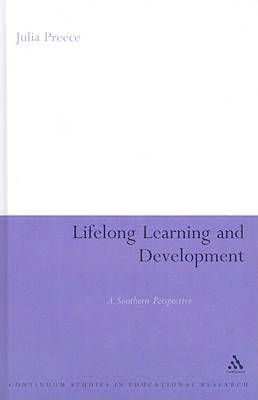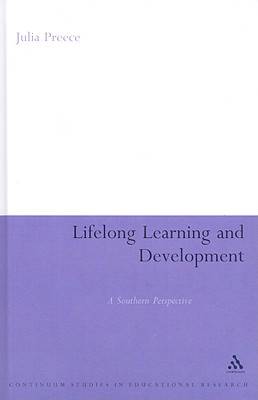
- Retrait gratuit dans votre magasin Club
- 7.000.000 titres dans notre catalogue
- Payer en toute sécurité
- Toujours un magasin près de chez vous
- Retrait gratuit dans votre magasin Club
- 7.000.000 titres dans notre catalogue
- Payer en toute sécurité
- Toujours un magasin près de chez vous
Description
This fascinating monograph explores lifelong learning in the context of development as it is used for low and middle income countries, particularly with reference to Africa and South Asia. Taking a broadly postcolonial and critical theory perspective, thus privileging texts from the 'global South' that highlight pre-colonial origins for lifelong learning, it critiques the discourse of development as it applies to education for low income countries, and explores relevant texts that apply lifelong learning principles to nation building and other development issues.
Professor Preece draws on the broader philosophical and sociological concerns of authors from low and middle income countries in order to highlight values, cultures and learning priorities that are often forgotten in the dominant and usually instrumentalist policy texts for lifelong learning. She includes reference to African Renaissance texts on African philosophies and education traditions, feminist theories on lifelong learning, Southern feminist approaches to gender issues, and comparative research literature that addresses the dangers of uncritical international transfer.Spécifications
Parties prenantes
- Auteur(s) :
- Editeur:
Contenu
- Nombre de pages :
- 200
- Langue:
- Anglais
- Collection :
Caractéristiques
- EAN:
- 9781847062918
- Date de parution :
- 20-11-09
- Format:
- Livre relié
- Format numérique:
- Genaaid
- Dimensions :
- 155 mm x 234 mm
- Poids :
- 453 g







